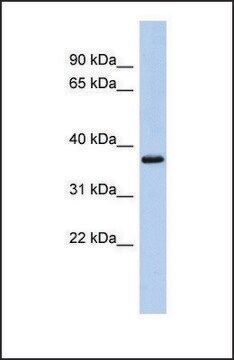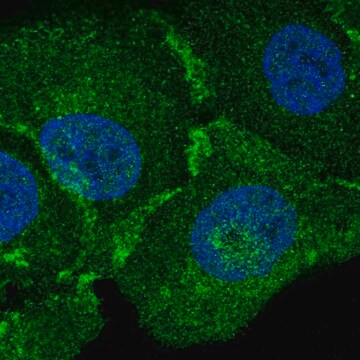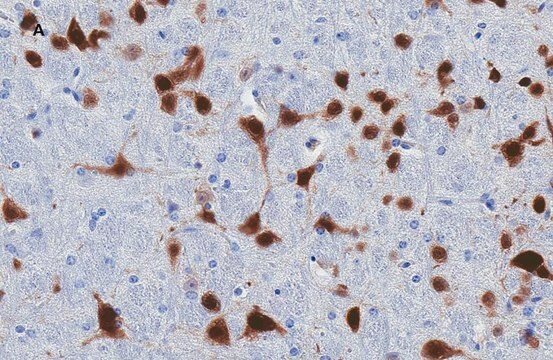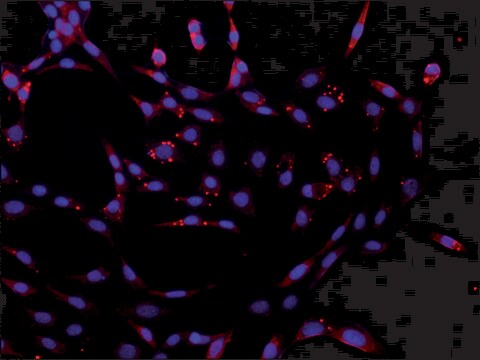SAB4200114
Anti-EDC4 (N-terminal) antibody produced in rabbit
~1.0 mg/mL, affinity isolated antibody
Synonyme(s) :
Anti-Ge-1, Anti-HEDLS (Human enhancer of decapping, (large subunit), Anti-RCD-8
About This Item
Produits recommandés
Source biologique
rabbit
Niveau de qualité
Conjugué
unconjugated
Forme d'anticorps
affinity isolated antibody
Type de produit anticorps
primary antibodies
Clone
polyclonal
Forme
buffered aqueous solution
Poids mol.
antigen ~150 kDa
Espèces réactives
human
Concentration
~1.0 mg/mL
Technique(s)
immunoprecipitation (IP): 5-10 μg using ysates of HEK-293 cells over expressing human EDC4
indirect immunofluorescence: 2-5 μg/mL using paraformaldehyde fixed NIH-3T3 cells over expressing human EDC4
western blot: 0.5-1 μg/mL using lysates of HEK-293 cells over expressing human EDC4
Numéro d'accès UniProt
Conditions d'expédition
dry ice
Température de stockage
−20°C
Modification post-traductionnelle de la cible
unmodified
Informations sur le gène
human ... EDC4(23644)
mouse ... Edc4(234699)
rat ... Edc4(361399)
Description générale
Spécificité
Application
- immunoprecipitation
- immunofluorescence
- immunoblotting.
Actions biochimiques/physiologiques
Forme physique
Stockage et stabilité
Clause de non-responsabilité
Vous ne trouvez pas le bon produit ?
Essayez notre Outil de sélection de produits.
Code de la classe de stockage
10 - Combustible liquids
Point d'éclair (°F)
Not applicable
Point d'éclair (°C)
Not applicable
Faites votre choix parmi les versions les plus récentes :
Certificats d'analyse (COA)
Vous ne trouvez pas la bonne version ?
Si vous avez besoin d'une version particulière, vous pouvez rechercher un certificat spécifique par le numéro de lot.
Déjà en possession de ce produit ?
Retrouvez la documentation relative aux produits que vous avez récemment achetés dans la Bibliothèque de documents.
Notre équipe de scientifiques dispose d'une expérience dans tous les secteurs de la recherche, notamment en sciences de la vie, science des matériaux, synthèse chimique, chromatographie, analyse et dans de nombreux autres domaines..
Contacter notre Service technique







